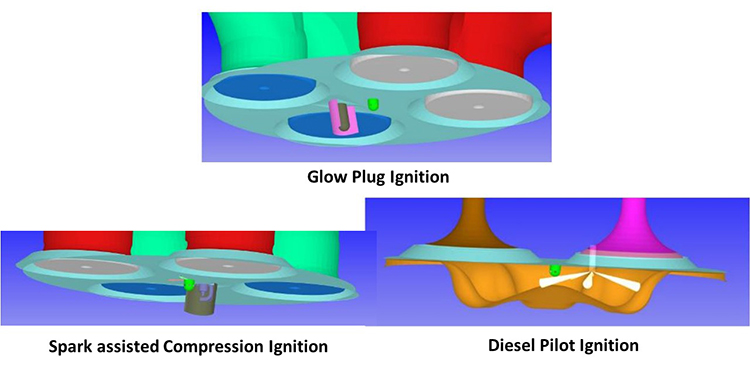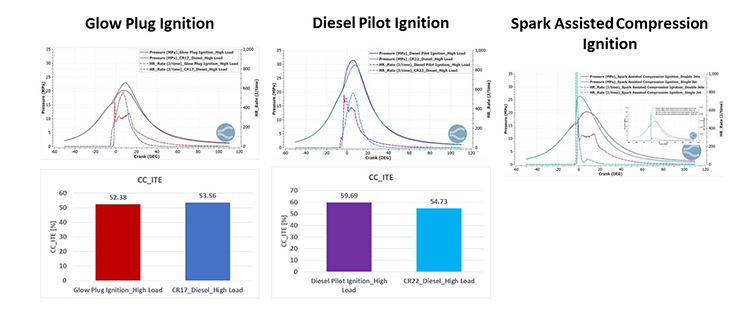Background
There has been a rapid shift towards decarbonization of transportation; for light-duty applications it is feasible to use battery electric vehicles, but in heavy-duty applications the range limits and recharge times of batteries are impractical. Hydrogen fuel cells have been proposed as the alternative, but fuel cells are far more expensive than engines and have significant durability limits.
To address this, hydrogen-fueled internal combustion engines are under development, primarily in Europe where regulations are proceeding more rapidly to decarbonize the fleet. These engines are spark-ignited and limited in their power density and efficiency because of the fundamental limits that end-gas autoignition (knock) present. This project explored approaches to leapfrog this limit by burning hydrogen as a diffusion flame that is compression-ignited, as in a diesel engine. This can offer far higher efficiencies than a spark ignited engine, allowing a hydrogen IC engine to be cheaper than a fuel cell and to match the operating efficiency of the fuel cell.
Approach
Computational fluid dynamics simulations of three compression-ignition concepts were carried out (see Figure 1): glow-plug assisted ignition, spark-assisted ignition, and diesel pilot ignition. These simulations were run using a baseline diesel engine combustion system and predicted indicated thermal efficiency of the combustion process and the emissions from combustion.

Figure 1: Combustion Chamber Geometries for the Considered Systems
Accomplishments
The simulation results showed promising results with similar or better indicated thermal efficiency than diesel combustion (see Figure 2) and similar emissions. These suggest the potential for a compression-ignited hydrogen engine to have similar fuel efficiency as a fuel cell vehicle. The emissions can easily be addressed using similar technology to a diesel engine. These results are being used for promotion to clients and to make plans for future combustion system development in the CHEDE 8 consortium.

Figure 2: Efficiency Results for the Three Systems
